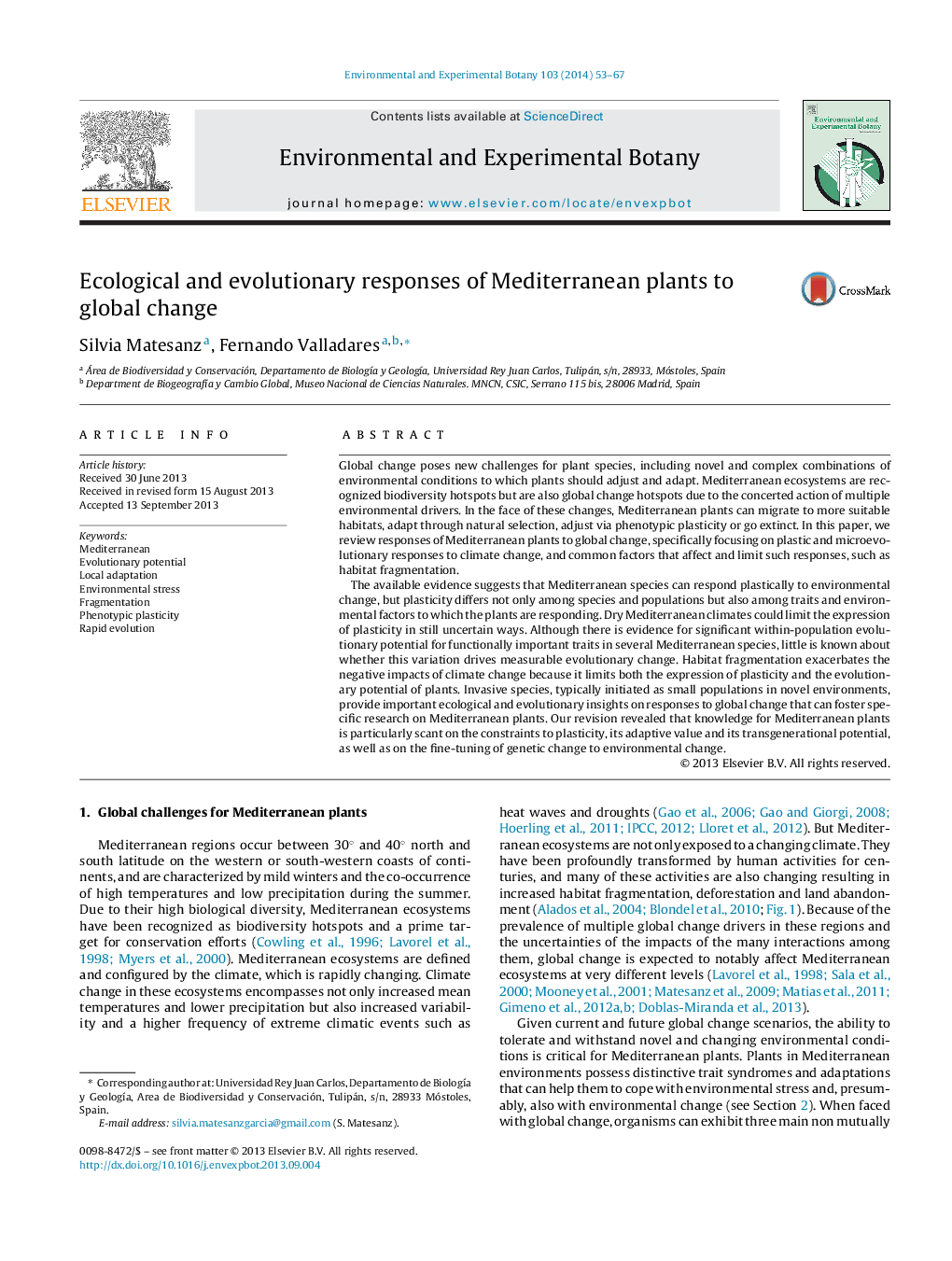| کد مقاله | کد نشریه | سال انتشار | مقاله انگلیسی | نسخه تمام متن |
|---|---|---|---|---|
| 4554435 | 1628074 | 2014 | 15 صفحه PDF | دانلود رایگان |
• We review plastic and evolutionary responses of Mediterranean plants to global change.
• Plasticity differs among species and populations, among traits and environmental factors.
• Little is known about whether genetic variation can drive a measurable evolutionary change.
• Habitat fragmentation exacerbates the negative impacts of climate change.
• Knowledge is particularly scant on the constraints to plasticity, its adaptive value and its transgenerational potential.
Global change poses new challenges for plant species, including novel and complex combinations of environmental conditions to which plants should adjust and adapt. Mediterranean ecosystems are recognized biodiversity hotspots but are also global change hotspots due to the concerted action of multiple environmental drivers. In the face of these changes, Mediterranean plants can migrate to more suitable habitats, adapt through natural selection, adjust via phenotypic plasticity or go extinct. In this paper, we review responses of Mediterranean plants to global change, specifically focusing on plastic and microevolutionary responses to climate change, and common factors that affect and limit such responses, such as habitat fragmentation.The available evidence suggests that Mediterranean species can respond plastically to environmental change, but plasticity differs not only among species and populations but also among traits and environmental factors to which the plants are responding. Dry Mediterranean climates could limit the expression of plasticity in still uncertain ways. Although there is evidence for significant within-population evolutionary potential for functionally important traits in several Mediterranean species, little is known about whether this variation drives measurable evolutionary change. Habitat fragmentation exacerbates the negative impacts of climate change because it limits both the expression of plasticity and the evolutionary potential of plants. Invasive species, typically initiated as small populations in novel environments, provide important ecological and evolutionary insights on responses to global change that can foster specific research on Mediterranean plants. Our revision revealed that knowledge for Mediterranean plants is particularly scant on the constraints to plasticity, its adaptive value and its transgenerational potential, as well as on the fine-tuning of genetic change to environmental change.
Journal: Environmental and Experimental Botany - Volume 103, July 2014, Pages 53–67
